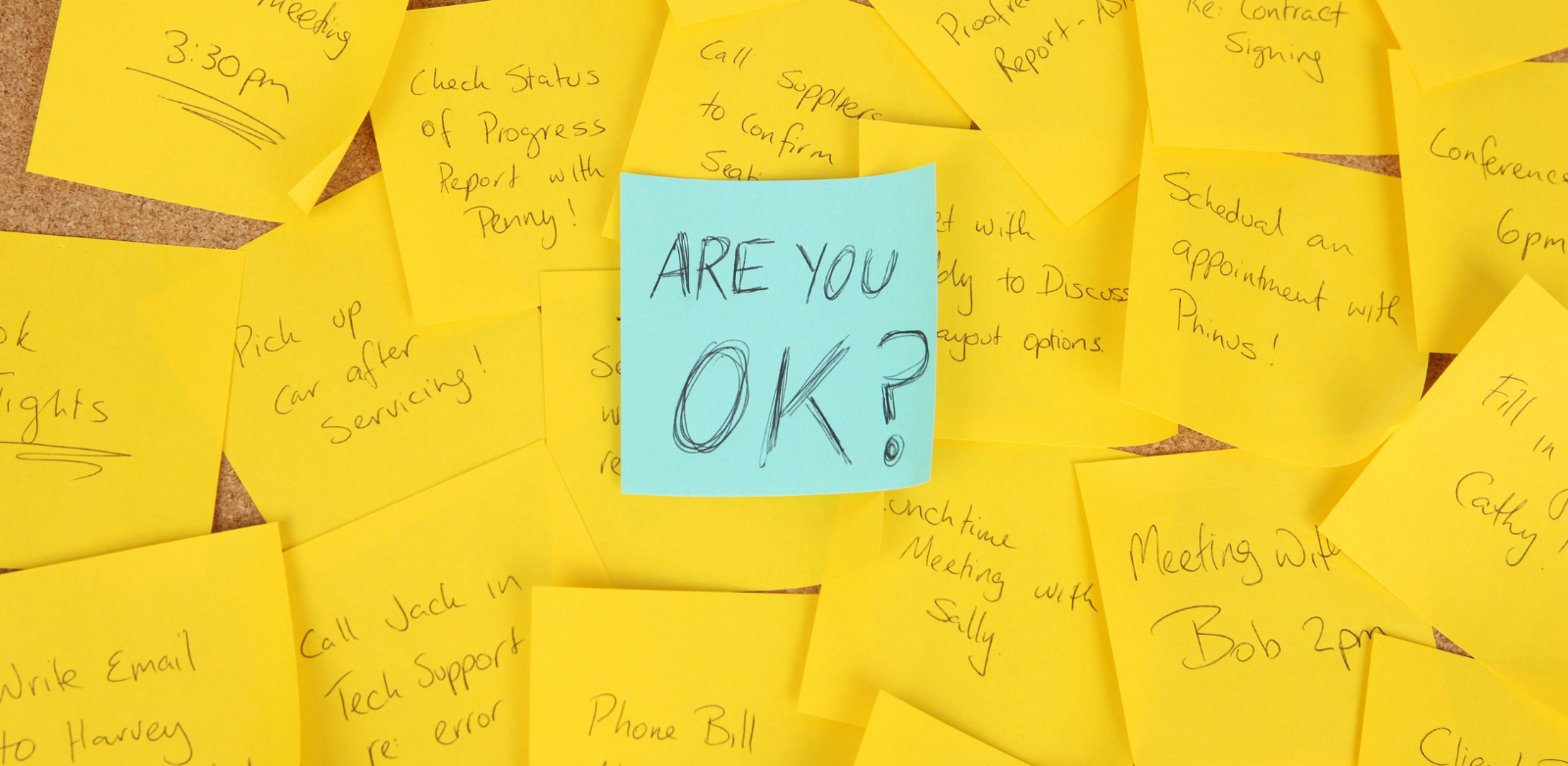R U OK to have the Conversation?
RU OK? day is held in September each year. The day has been held annually since 2009. It is a national day of action dedicated to reminding everyone that every day is the day to ask, “Are you OK?” and support those struggling with life’s ups and downs.
This September provides an opportunity to reflect on our behaviours versus our intentions. We may have the best of intentions – we know we should check in and see how others are doing, however, having conversations about stress and wellbeing does not come naturally to most of us.
As individuals, we can feel uncomfortable opening up and leaders can feel they are prying. This often means that the conversation doesn’t happen at all, or is covered quickly, so everyone can move on with the more comfortable and familiar work conversations.
The Importance of Wellbeing Today
Many factors in life are impacting our wellbeing and challenging our brains. The pressures of modern life and living with ongoing uncertainty and unpredictability can put our brains into survival mode. This effect is exacerbated when we work remotely without the usual opportunities for informal catchups in our day.
When our focus is on survival, we become less tolerant of others and prioritise looking after number one (ourselves and our loved ones). We also narrow our thinking and are more prone to negative thoughts and emotions, which impact our wellbeing and our long-term mental and physical health.
‘Wellbeing’ has been identified ‘as the top priority for people entering the 21st Century workforce’ in the 2021 Atlassian and PwC ‘Return on Action’ Report. It was ranked in fourth place in 2020.
Fortunately, organisations are in a privileged place to support the psychological health of their people by ensuring individuals have the skills and tools to manage their own wellbeing and providing managers with the tools to lead the wellbeing of others.
Being able to talk about sensitive subjects such as Stress, Change and Resilience is important, but how do we support people to have these conversations?
A ‘Gamechanger’ for Enabling Conversations
Wellbeing conversations present a twofold challenge – people often don’t how to express themselves and there is no common language or shared understanding of what wellbeing is, to enable productive discussions as individuals or as a team.
We believe this challenge needs a new approach, a Gamechanger in fact (Definition of Gamechanger – an event, idea, or procedure that effects a significant shift in the current way of doing or thinking about something).
Learning how our brains work, both for and against us, and applying practical insights from the world of Neuroscience to manage ourselves is the focus of our Gamechanger program. Gamechanger is about the whole person and everything learned can be applied both inside and outside of work.
Going through the 8 lessons of the program as a team creates a shared understanding and a common language for people to explore how to apply this information to themselves, their team, the organisation and the stakeholders they serve. The 8 lessons are –
1. Welcome to your Amazing Brain
2. The Power of Neuroplasticity
3. Balancing the Negativity Bias
4. Building Change Agility
5. Your Brain and Stress
6. Prioritising your Self Care
7. Powering Up Your Productivity
8. Boosting your Resilience
Leader’s Resource for Meaningful Conversations
The Gamechanger program is supported by a Leader’s Resource to facilitate meaningful team conversations around the lesson topics to help build trust and maintain momentum. When conversations are led with a spirit of genuine curiosity and understanding, and without any repercussions for speaking up, leaders are creating a safe environment and enabling the development of their people and wellbeing of the team.
So What’s the Gamechanger?
When we understand how our brains work AND we can discuss what we are learning, we are enabling deeper conversations. We are also creating a climate of sharing and openness. When we feel safe, we are more open-minded, resilient, motivated and better able to perform at our best.
The benefit for organisations who exercise their duty of care in this key area is that they are not only responding to the legal requirements around Psychosocial Hazards, but they are also supporting their people’s wellbeing and positively impacting performance, productivity and engagement.
 If you would like to know more about Gamechanger and our Leader’s Resource, please contact Anne on 0417 231 494 or email anne@rtpeople.com.au
If you would like to know more about Gamechanger and our Leader’s Resource, please contact Anne on 0417 231 494 or email anne@rtpeople.com.au

